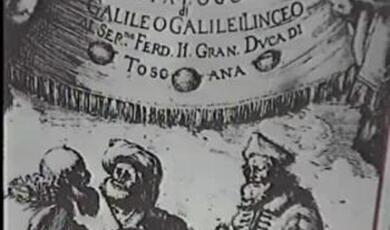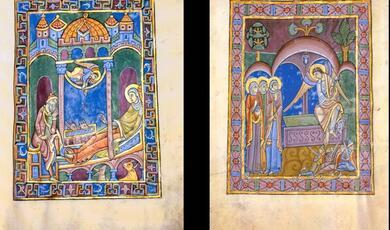The Novel as Political History: Stendhal's 'Le rouge et le noir'
Share
- Details
- Transcript
- Audio
- Downloads
- Extra Reading
Can a novel tell us something about political history that can’t be gleaned from other sources? Stendhal’s famous Le rouge et le noir (The Red and the Black) provides vivid insights into both the secret and overt machinations of the aristocracy and clergy of his day. How historically accurate can a novel be?
Download Transcript
25 November 2014
The Novel as Political History: Stendhal’s Le Rouge et le Noir (The Red and the Black)
Dr Belinda Jack
Stendhal, Le rouge et le noir (The Red and the Black): the Novel and Political History
[Music: Berlioz, ‘Symphonie fantastique’]
I hope Berlioz has set the mood. The novel we’ll be considering, Stendhal’s The Red and the Black is sub-titled ‘chronique de 1830’; B’s composition coincided with outbreak of REVOLUTION. [gloss]
This is the second of four lectures I’ll be giving on the novel. We started with Johnson’s Rasselas and the degree to which that work might be said to be bound up with the idea of the morality of happiness.
Tonight I want to continue to consider what I termed ‘the bagginess of the novel’. In other words you can stuff almost anything in. This must be one reason why the novel is by far the most read of all the genres. It’s worth remembering that this wasn’t the case until the 18th c. Before then religious works, essays, histories, poetry and plays were all more popular than the novel.
I have subtitled tonight’s talk, ‘The Novel and Political History’ and I want to ask to what extent the novel can tell us about this subject. Can it tell us more than political history proper? Or can it tell us something else?
I’ve chosen Stendhal’s The Red and the Black for a number of reasons.
[Image of Stendhal]
Stendhal subtitled it ‘Chronique de 1830’ and a ‘chronicle’ is generally considered to be an historical account. [gloss]
True or historical ‘facts’ are the stuff of histories, but also chronicle, annal, journalism, memoir, diary, autobiography, fiction, historical fiction…
So I’ve chosen The Red and the Black because it claims to be a ‘chronicle’, one of a number of genres which purport to convey historical facts and, because it’s a great read. It combines historical interest with acute psychology (which Nietzsche particularly admired). It’s also very funny.
So what is it about?
The hero of the novel, or anti-hero – much of the humour is bound up with this ambiguous status - is the fictional Julien Sorel. It is characteristic for the narrator to refer to him as ‘our hero’ when he’s just done something silly… .
He is an avowed hypocrite, intent on self-advancement. The events of the novel (I’m not altogether comfortable extracting ‘events’ from the dense fabric of the novel) are based on real events, as recorded in various numbers of the Gazette des Tribunaux [gloss] of December 1827. The Gazette specialised in sensational court proceedings.
[Image of True Crimes]
They concern one Antoine Berthet, the son of a village blacksmith.
[Images : Branges (Isère), Maison d’Antoine Berthet x 2]
Berthet was strikingly good-looking, intelligent and socially ambitious. The local curé [parish priest] encouraged him and, thinking highly of him, secured him the post of tutor to a well-to-do middle class family in Grenoble. This lasted less than a year and he then entered a seminary in Bellay. Less than two years into this life he was asked to leave. But determined as ever, he managed to enter a seminary in Grenoble but this endeavour lasted less than a month; he was told that he was unfit to become a priest. Destitute and desperate he began to write extraordinary letters to Madame Michoud, the wife of his employer in Grenoble. These were insulting and suggested that she had seduced him and then wearied of him, hence his dismissal. He had been replaced in her affections by another young tutor. Mon. Michoud naturally feared a scandal and quieted him by finding him another post, this time as tutor to the Count of Condon. This time there were accusations that Berthet had seduced the Count’s daughter and he was dismissed. Again Berthet blamed Mme Michoud claiming that she had circulated gossipy stories about him. A few weeks later Berthet appeared in church during a mass and fired two shots at Mme Michoud. He then turned the pistol on himself but succeeded only in breaking his jaw. At the trial he pleaded provocation: he had wanted to atone for his faults and become a priest but his confession to the Rector of the seminary had led to his expulsion. He had tried to behave decently in Mon Condon’s house but a letter from Mme Michoud had led to his dismissal. Acting on sudden impulse he had shot the woman he thought responsible for all his misfortunes. He was convicted of premeditated voluntary homicide and sentenced to death. There were plenty of people, however, who were moved by Berthet’s defence and saw him as the victim of people of higher social status. Despite their efforts they were unable to obtain a reprieve for him.
[‘working class’ hero/martyr... .]
Common in 19th c. to base novels on newspaper accounts of crimes; fiction and history [gloss].
The fictional Julien Sorel of Stendhal’s novel is from a humble background: his father owns a sawmill rather than a smithy. Like Berthet he benefits from opportunities offered by the church. He is taken under the wing of the local curé. When he comes of age he is appointed a tutor to a relatively grand family and seduces the wife of his first employer. He is then appointed secretary to the Marquis de la Mole and seduces his daughter. And the novel ends with a shooting of the first woman, a trial, and the execution of the young man.
So there are historical truths taken from real life. And there are plenty of historical references: to the Charter, to government by two chambers, plots against the monarchy and counter-moves against the Republicans, censorship of the press, constant fear of a new revolution, and, among the characters of the novel, Royalists and Liberals, Gallicans and Ultramontanists, Jesuits and Jansenists, who were pitted against each other [gloss all these].
Many seemingly small details are true of the historical moment. Like vast numbers of young men at the time, Julien looks back on the days of Napoleon’s Grand Army and the opportunities for advancement that it afforded. Napoleon is his hero. [image]
All this historical material – the details of the Berthet trial and the events that lead up to it, the virtual omnipresence of contemporary politics, and the sense that everything that happens in the novel is post-Napoleonic, contributes to what Stendhal provides: a picture of life in the provinces and in Paris during a period when there were deep tensions between Royalists and Liberals. These culminate in the July Revolution’, also known as the ‘trois glorieuses’, the ‘three glorious days’ that witnessed the abdication of Charles X in favour of a ‘citizen king’. The historical moment of The Red and the Black is one in which the Liberals, rooting for the Republican principles of freedom of thought and freedom of the press came up against the principles of the Ultra-Royalists (les Ultras, ‘Ultras’ for short). The Ultras supported Charles X in his attempts to restore the status quo of the Ancien régime. Things are also complicated by the Church, referred to as the ‘alliance of throne and altar’. But does this ‘background’ – and occasional ‘foreground’ of political events and the political scene generally – render the work an important work of political history?
The Red and the Blackhas often been described as a Bildungsroman [gloss]
The protagonist, Julien Sorel, is intelligent, ambitious but wholly unworldly at the outset of the novel. From his limited observations of the world he decides that an attitude of hypocrisy is the best approach to adopt if he is to succeed, and success is his only ambition. He is also a highly energetic and passionate figure and ultimately it is his passions which let him down. Early on we read repeatedly that Julien can be overcome, suddenly, by ideas or sights which ‘le rendit fou’ (‘drove him crazy’, ‘induced delirium’) [gloss].
The novel can also be described as a satire on life under the Bourbon Restoration (1814-1830). [gloss political satire]
So what is the object of Stendhal’s satirical treatment?
This was a period in which the hypocrisy and acquisitiveness of the upper classes and church held sway, a period of relatively dull stasis before the radical changes of 1830. Early on in the novel (chapter 5), Julien realises that when Bonaparte was in power, ‘le mérite militaire était nécessaire et à la mode’ [trans.] whereas now, priests earn ‘trois fois autant que les fameux généraux de division de Napoléon.’ [trans] This unsophisticated and frank reflection culminates in Julien’s decision : ‘Il faut être prêtre’ (p.39)
So the novel is, among other things, a satire which exposes the moral stagnation of the Restoration period. Political satire is, arguably, a branch of political history. But what I want to do tonight is to explore the extent to which the novel is more than an imagined filled-out account of Berthet’s life and trial (a set of historical facts), set against the contemporary political background and the intrigues of Church and State (the background is historically accurate), and a political satire.
We need to look much more closely at the fabric of the novel – its language and structure.
The Red and the Black is in two parts. The first begins in the fictional Verrières, set in Franche-Comté, where we are introduced to Julien’s life as a labourer in his father’s sawmill. Unlike his father and brothers, Julien enjoys reading and the life of ideas and the imagination. This creates hostility in the family and Julien’s brothers regularly beat him for what they see as his intellectual pretensions. The only local opportunities for education are offered by the local curé, Abbé Chelan. Julien learns Latin with ease on account of a prodigious memory (he quickly realises that his ability to recite large chunks of the Bible in Latin raises his status considerably), and the Abbé is able to secure him a job as a tutor to the children of the local mayor, M. De Rênal. [gloss ‘repetition’ = maintenance of the status quo]
Mme de Renal is drawn to Julien and, flattered and intrigued by the novelty of his position he sets about seducing her. This he does as a soldier might on a mission and when he meets his first success, he returns to his room and reflects on the ‘assignment’ as follows:
‘Comme le soldat qui revient de la parade, Julien fut attentivement occupé à repasser tous les détails de sa conduite. – N’ai-je manqué à rien de ce que je me dois à moi-même ? Ai-je bien joué mon rôle ?’[p.99; trans.]
Julien’s position is complicated by the fact that Elisa, a chambermaid in the Rênal household, is also in love with him. It is Elisa who betrays him and Julien is dismissed from the Rênal household. [gloss Julien v Antoine Berthet]
The Abbé Chelan then orders Julien to enter a seminary in Besançon and he has no choice but to obey. New to the seminary he is treated as something of a scapegoat and he laments the intellectually stifling atmosphere and hypocrisy of the other seminarians. The director of the seminary, Abbé Pirard behaves unsympathetically towards Julien at the beginning of his stay. He is a Jansenist [gloss]. Within the diocese of Besançon, the Jansenists are hated even more than the Jesuits. He is guided by a severe principle: ‘Un homme a-t-il de mérite à vos yeux? Mettez obstacle à tout ce qu’il désire, à tout ce qu’il entreprend. Si le mérite et réel, il saura bien renverser ou tourner les obstacles.’[trans] He is impressed by Julien’s patience and determination and becomes his protector. When Abbé Pirard decides to leave the seminary – after enduring various political machinations of the church - he first secures a post for Julien so that he too can leave the place that they have both come to detest. Pirard recommends him to a diplomat and Roman Catholic Legitimist, the Marquis de la Mole [gloss; Legitimists]
Life in Paris moves at a faster pace than in the provinces and events in Part 2 of the novel seem to occur with greater rapidity. [gloss; true of historical moment – mimicked/conveyed brilliantly within the fabric of the novel.]
We are now in the years that led up to the July Revolution of 1830. On arrival at the Hôtel de la Mole, Julien is immediately aware that he will be circulating in high society: [image of passage (trans.)]
‘Le gravité du portier et surtout la propreté de la cour l’avaient frappé d’admiration. Il faisait un beau soleil.
- Quelle architecture magnifique!...’
The narrator, on the other hand, adds :
Il s’agissait d’un de ces hôtels à façade si plate du faubourg Saint-Germain, bâtis vers le temps de la mort de Voltaire. Jamais la mode et le beau n’ont été si loin l’un de l’autre.’
[trans./Image]
It’s worth hesitating; briefly, to consider the manner of telling of this passage which comes at the very end of chapter 1, as it exemplifies typically Stendhalien features. The narrative technique slips between third person omniscient - Julien is described in the third person - ‘struck by the gravity of the doorman’, and textual material which we attribute rather to the perspective of the character just described: ‘It was a beautiful sunny day]. This is inserted before Julien’s direct speech, and we associate the recognition of the fine day with Julien’s elated mood. So taken is he with his environment that he would naturally notice what a fine day it was. Julien then articulates his view of the ‘magnificent architecture’ and the narrator then, with delightful bathos, comments on it, remarking that it is ‘flat’ and – this is a stroke of genius - associates its date of construction with the death of Voltaire. [gloss; bathos]
Voltaire was one of the key thinkers of the Enlightenment; describing the architecture as inseparably linked to the death of Voltaire renders the building – and by implication its inhabitants - synonymous with the death of Reason. Finally, the narrator asserts that the architecture is ‘fashionable’ and that the fashion is for an aesthetic as far as conceivable from ideas of the beautiful. The concepts of romantic infatuation and rationalism are re-introduced at the outset of the next chapter which opens:
‘Julien s’arrêtait, ébahi, au milieu de la cour.’ The Abbé Pirard reproaches him:
-Ayez donc l’air raisonnable...’ [trans ; gloss]
Despite his position in the household, and his intellectual strengths – his demonstrable memory, for example – he is treated as a member of the lower orders, much to his chagrin. At the same time he becomes very aware that even those of the higher classes and blessed with high intelligence are unable to participate at the political level they would like. Social life is stultifying because so many subjects are considered taboo. In the fourth chapter (Folio, p.257) the narrator tells us with consummate Stendhalian irony:
‘pourvu surtout qu’on ne parlât jamais politique, on pouvait librement raisonner de tout.’[trans.]
Given the turbulent times in which they are living, the only interesting rational discussion worth having would be, of course, about politics.
[gloss; taboo]
Despite Julien’s growing insights into the way things work, he is capable of extraordinary blindness - if distracted by passions. A key example of this occurs when Julien accompanies his employer to a secret meeting. He is then sent by the Marquis de la Mole on a dangerous mission to England where he must communicate a letter which he has had to learn by heart. The recipient is the exiled Duc d’Angoulème. Julien is preoccupied by an unsuccessful love-affair and learns the letter by heart without considering its meaning [gloss]
The letter is about a right-wing political plot and Julien is the unwitting key messenger in it. The right-wing monarchists are, of course, Julien’s sworn enemies.
Alongside the more obvious political story with its realism, ironies, satire is a romantic one – but it too is far from devoid of politics. The Marquis’ daughter, Mathilde, bored by the stultifying atmosphere of her parents’ household, is impressed by Julien’s sensitive looks and intellectual gifts but, initially at least, resists falling in love with him because of his lowly origins. To begin with we learn that Julien finds her unattractive, but the attentions paid to her by various suitors draw Julien into the competition and he then sees her as highly desirable. At one point Julien is about to leave on an errand but Mathilde explains that she will write him an explanatory letter but that he must not leave the following day:
Sa taille était charmante. Il était impossible d’avoir un plus joli pied, elle courait avec une grâce qui ravit Julien ; mais devinerait-on à quoi fut sa seconde pensée après qu’elle eut tout à fait disparu? Il fut offensé du ton impératif avec lequel elle avait dit ce mot il faut.
[trans. gloss, power: active v. passive]
Despite his growing attraction to Mathilde his fragile ego remains his first preoccupation. Offended by her order a striking comparison comes to mind:
Louis XV aussi, au moment de mourir, fut vivement piqué du mot il faut, maladroitement employé par son premier médecin, et Louis XV pourtant n’était pas un parvenu. [trans./gloss]
Julien and Mathilde are twice amorously joined but each time Julien is then rejected, and his mood swings from one of triumph at having had an intimate encounter with an aristocratic Parisian to despair that he has been once more been pushed away.
But while on his mission he opens up to a worldly Russian prince, Prince Korasoff who instructs him in the jeu d’amour (p.392-3) and has a copyist provide Julien with fifty-three carefully-numbered love letters! [gloss]
When Julien returns to Paris he sets out to win Mathilde over with, once again, comic determination. On one occasion he follows her to the Opéra-Buffa:
‘Julien la regarda constamment. Il faut, se dit-il, en rentrant à l’hôtel, que je tienne un journal de siège [ !] ; autrement j’oublierais mes attaques. Il se força à écrire deux ou trois pages sur ce sujet ennuyeux, et parvint ainsi, chose admirable [!] à ne presque pas penser à Mademoiselle de La Mole’. (p.399) [trans. Gloss irony]
Following Prince Korasoff’s instructions, Julien begins to send love letters to Madame de Fervaques, a widow who regularly comes to the de La Mole household. This – as planned - provokes Mathilde’s jealousy, and she falls genuinely in love with Julien. She then reveals to him that she is pregnant with his child. When the Marquis de la Mole discovers that his daughter and Julien are in love he is initially angered but relents partly because of Mathilde’s determination and partly out of affection for Julien. He decides to offer him a property which generates a substantial income and comes with a title, along with an army commission. It looks as though Julien has arrived:
Le soir, lorsqu’elle apprit à Julien qu’il était lieutenant de hussards, sa joie fut sans bornes. On peut se la figurer par l’ambition de toute sa vie, et par la passion qu’il avait maintenant pour son fils. Le changement de nom le frappait d’étonnement.
Après tout, pensait-il, mon roman est fini [ !], et à moi seul tout le mérite. J’ai su me fait aimer de ce monstre d’orgueil, ajouterait-il en regardant Mathilde ; son père ne peut vivre sans elle, et elle sans moi. [p.439 ; trans. Gloss]
But Stendhal’s novel has not yet reached its conclusion – needless to say! Novels may end with the protagonist triumphing but the Berthet trial (‘real life’) didn’t.
Meanwhile the Marquis de La Mole has written to Verrières soliciting a character reference. The letter he receives in reply has been written by none other than Mme de Rênal who, under pressure from her priest (and confessor) describes Julien as an ambitious social-climber who seduces women as a means to his own driven end. The Marquis then forbids the marriage of Mathilde and Julien but he explains to his daughter that he is willing to provide him with an income if he agrees to move far away. Meanwhile, learning that the letter which has been his undoing was written by Mme de Rênal, Julien returns to Verrières and shoots her during mass in the local church.
Although the shooting isn’t fatal Julien is sentenced to death. Mathilde tries to save him by bribing various officials and Mme de Rênal – who is still in love with him – refuses to testify against him. Numerous members of the clergy also intervene but Julien is determined to die in part to justify his view that the hypocritical and materialist society of Restoration France militates against social mobility of any kind, even for a man of intellect, energy and determination.
[gloss]
Both Mathilde and Mme de Rênal visit Julien daily in prison and Julian’s love for Mme de Rênal is re-kindled.
The novel ends dramatically. After Julien has been guillotined Mathilde visits him:
Elle se jeta à genoux. Le souvenir de Boniface de La Mole et de Marguerite de Navarre lui donna sans doute un courage surhumain. Ses mains tremblantes ouvrirent le manteau… Elle allumait plusieurs bougies… Elle avait placé sur une petite table de marbre, devant elle, la tête de Julien, et la baisait au front… [trans. p.498].
But it is with Mme de Rênal that the novel closes:
‘Madame de Rênal fut fidèle à sa promesse. Elle ne chercha en aucune manière à attenter à sa vie ; mais trois jours après Julien, elle mourut en embrassant ses enfants. (trans. p.499)
So let’s retun to the question of the novel’s relationship with political history?
What kind of historic-political insights does it provide?
There are a number of subsidiary questions we need to ask, and problems we need to
consider:
What do we mean by political history? [gloss]
We immediately encounter a problem as there is no mention in Stendhal’s account of the most important event of 1830: the July Revolution which brought the Bourbon monarchy (and the Restoration) to an end.
[gloss S’s epigraph]
In addition to the absence of the most dramatic historical event of 1830 (the July Revolution, as I’ve said), is the fact that Stendhal provides an introductory note in which he claims that the novel was written in 1827. This would suggest that the work is fictional as Stendhal is predicting history, rather than recording it. Things are further complicated, however, by the fact that some of the events narrated in the novel are indeed historical events of 1830. The most important event is the première of Victor Hugo’s play, Hernani. [gloss]
So when did Stendhal actually write The Red and the Black? This is surely a question intimately bound up with questions of the novel’s status as ‘political history’.
Stendhal wrote a projected book review of his own work (!) in which he refers to a portrait of ‘1829’. All the evidence points to the fact that he was out chronicled by history. That’s to say that just before finishing the novel the dramatic events of 1830 took place (the Revolution was in July), but Stendhal was unable/unwilling to find a way of incorporating the Revolution into his text.
As an aside, this suggests that the Revolution of 1830 was, for Stendhal at least, to some extent unexpected. Doesn’t this fact itself provide an interesting insight into the political history of the moment?
In any case, given the problematic relationship of Stendhal’s work to history can it - and can fictional works more broadly - provide insights into political history that ‘conventional’ history cannot?
Are there any other clues within the novel in relation to political history?
Key passage:
At one point [gloss; p.375], the ‘author’ interrupts the narrative; there is a long parenthetical section:
At this point the author would have preferred a page of ellipses/dots. ‘That will be inelegant’, said the editor, ‘and in a work this frivolous, if you lack grace you are dead’. ‘Politics’, the author replied, ‘is a stone hung around the neck of literature, which will sink in less than three months’ time.’ Politics amid the interests of the imagination is like a pistol shot in the middle of a concert. It’s all sound and fury, and clashes with the sound of every instrument. Politics is going to give mortal offense to half the readers, and bore the other half who found it much more interesting and energetic in the morning paper.
‘if your characters don’t talk politics’, resumes the publisher, ‘then they are no longer Frenchmen of 1830, and your book is no longer a mirror, as you claim it is.’
(Ici l’auteur eût voulu placer une page de points. Cela aura mauvaise grâce, dit l’éditeur, et pour un écrit aussi frivole, manquer de grâce, c’est mourir. – La politique, reprend l’auteur, est une pierre attachée au cou de la littérature, et qui, en moins de six mois, la submerge. La politique au milieu des intérêts d’imagination, c’est un coup de pistolet au milieu d’un concert. Ce bruit est déchirant sans être énergique. Il ne s’accorde avec le son d’aucun instrument. Cette politique va offenser mortellement une moitié des lecteurs, et ennuyer l’autre qui l’a trouvée bien autrement spéciale et énergique dans le journal du matin… - Si vos personnages ne parlent pas politique, reprend l’éditeur, ce ne sont plus des Français de 1830, et votre livre n’est plus un miroir, comme vous en avez la prétention…)
[gloss]
Concluding remarks [to be glossed at length] :
‘Fiction’ – its oblique relationship with political history; importance, in this case, of the capacity of the novel to convey the importance of ‘absences’ or ‘silences’ [gloss]
Restoration as ‘anti-type’/void/non-events(s)/hiatus/stasis: these immensely difficult to convey as political history (by definition a matter of events, their causes, their consequences, how it is all explained). Woven brilliantly into the fabric of the novel (all also related to human psychology/psychology of those with power to act (rather than imitate) as I hope I’ve shown.
Taboo, ‘what must not be articulated linguistically’/parroting, ‘repetition of received discourse’ (political, ideological, religious); this all contributes to maintenance of status quo; rise of the printed press and literal ‘reproduction of discourse’.
Political satire tends not to offer ‘solutions’; within fictional construct of S’s novel Rev. might (inevitably?) have been (mis-?) read by some as an apparent ‘solution’.
Finally, what does the novel’s own history tell us about political history?
[gloss; burned in Brazil, 1964]
On the other hand the novel was hugely influential in Russia in the nineteenth century…
Importance of subtleties of political satire (in contrast to political history) in relation to censorship.
By the 1830s, Paris had become the undisputed centre of European culture — a hotbed of new thinking in the arts and letters.
Relaxation of censorship laws allowed for the publication of S’s wonderful novel.
Paris also became focal point of Romanticism in music.
After a sensational debut on Feb. 26, 1832, with Lisztand Mendelssohn among those in the audience, Chopin, three days shy of his 22nd birthday, took his place as one of the stars of the French capital. He was only tangentially involved politically (but witnessed Polish Rev. also of 1830), but the energy of his music (like Berlioz’s) conveys something of the mood of Europe at the time:
[image: In 1846, Ary Scheffer (1795–1858) painted a portrait of Chopin at Nohant, George Sand’s estate in central France. This engraving, made by August Weger (1823–1892) of Leipzig, is based on Scheffer’s painting.]
[audio: Chopin Piano 1]
Chopin was George Sand’s lover for many years and she was much more politically involved. We’ll be thinking about what she managed to stuff into the novel next, in late January next year. [portrait made at Nohant, Sand’s estate in the Cher]
Thank you.
© Dr Belinda Jack, November 2014
This event was on Tue, 25 Nov 2014
Support Gresham
Gresham College has offered an outstanding education to the public free of charge for over 400 years. Today, Gresham plays an important role in fostering a love of learning and a greater understanding of ourselves and the world around us. Your donation will help to widen our reach and to broaden our audience, allowing more people to benefit from a high-quality education from some of the brightest minds.


 Login
Login







